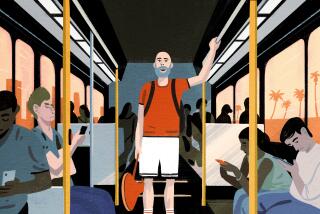Traveling in China? Have a Plan B
We arrived at the north train station in this central Chinese city at 12:25 p.m. on a Thursday, five minutes before our scheduled departure. The ticket lines were so long they spilled out of the building.
In a similar situation in Anhui province a couple of years ago, my research assistant and I found someone wandering outside the station whose sole task was to look for passengers in a hurry, collect their money for the ticket, plus a $2.75 fee, and then take it to one of his several friends who were in the front of the line.
This time we had no such luck. We glumly walked away from the station. There wasn’t another train departing for six hours; that would be too late to make my evening appointment in Chengdu, about 160 miles to the northwest.
It was a letdown, certainly, but not a surprise. Though China is building more and better roads, travel remains a trial. Buses and trains are packed with passengers; delays are common. The transportation system’s shortcomings have spawned a more efficient, if less official, subsystem that’s often a better route -- if only you can find the entrance.
My assistant suggested we get a taxi driver to take us to Chengdu. I frowned. It would cost 10 times the price of the train ticket. And I dreaded the thought of having to negotiate with private drivers over long-distance trips. I had been taken too many times. Sometimes they would go on rough roads to save a little on fuel; other times they would exaggerate the distance.
Trust is a rare commodity in China. And some of my worst experiences have been in vehicles, whether three-wheeled rickshaw cycles taking passengers into Beijing’s hutong neighborhoods of ancient alleys or loaf-shaped ultra-mini-vans climbing up Changbai Mountain near the North Korean border.
“Forget it,” I told my assistant. We walked past the taxi stand and, lugging two bags each, made the long walk to the long-distance bus terminal on the other side of the station.
The next bus to Chengdu was in four hours. My heart sank. I was ready to call it quits and cancel my appointment. Then a small, balding man, dressed in a ragged suit jacket, said he could get us on a bus to Chengdu in 20 minutes.
I was skeptical. I grilled him on the size of the bus -- “It’s a big one,” he insisted -- and on whether it would go directly to Chengdu. “Yes,” he promised.
I wasn’t convinced. But my assistant started following him. I trudged behind.
The man took us into his little motor box, a three-wheeler common in China. Imagine a motorcycle with the back wheel removed and a little two-seater cabin mounted in its place, with a pair of wheels underneath. We rode inside that for 15 minutes, as the vehicle turned and twisted on highways and back roads.
The man pulled up at the base of a small hill and told us to get out. He led us on a path up the hill, past bushes and trees, until we arrived at a dark and scary-looking underpass.
“Be careful,” I shouted to my assistant as she followed the man, entering the tunnel. He told us to hurry.
When we got through the underpass, we walked uphill a little more and found ourselves on the shoulder of the freshly paved Chongqing-Chengdu expressway. A big 34-seat bus was stopped there. The back door opened. The man collected 100 yuan (about $14.25) from each of us and hurried us aboard.
There were several open seats. The bus was clean. There was an enclosed toilet in the middle of the vehicle. There were two video monitors playing some Hong Kong kung fu movie. I sighed in relief and dropped into an open seat. A minute later, the bus was moving.
Long-distance buses aren’t supposed to stop on the highway and pick up passengers. But that didn’t matter. As long as there is a market and profits, as small as they may be, in China you can be sure there’s a system in place with a chain of people supporting it. In this case, I’m sure the bus driver, his assistant who helped passengers load and unload, and the man who led us to the bus from the station all got their cut.
We were on our way to Chengdu.
More to Read
Sign up for The Wild
We’ll help you find the best places to hike, bike and run, as well as the perfect silent spots for meditation and yoga.
You may occasionally receive promotional content from the Los Angeles Times.






